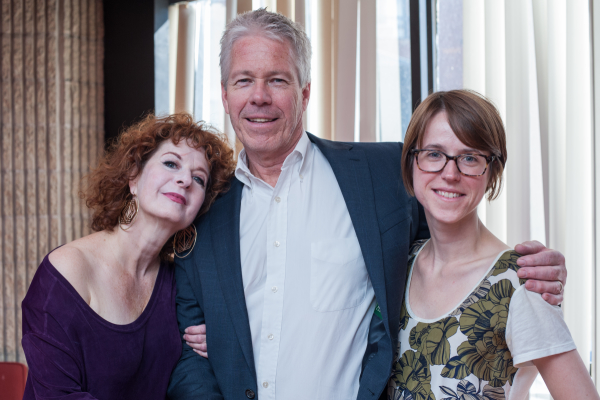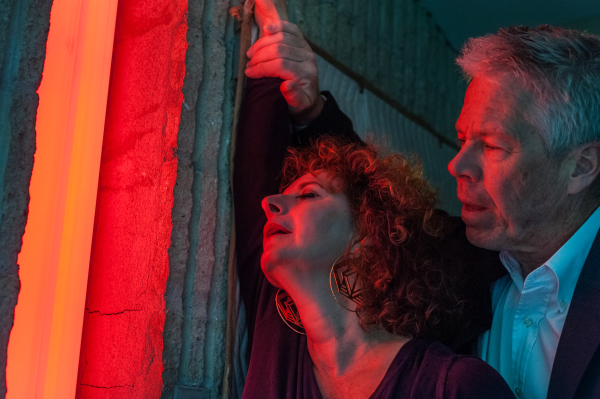Director M. Bevin O'Gara Tells the Story of Modern Women Through Classic Greek Tragedy
How do you get audiences excited about a five-act Greek tragedy written by a 17th-century French dramatist?
"It's a Greek sexual thriller — with tragic undertones," joked M. Bevin O'Gara.
The Boston mainstay is now directing a production of Jean Racine's Phèdre with Actors' Shakespeare Project (ASP), beginning performances November 19 at the First Church in Boston. The centuries-old story follows its mythological title character as she lusts over her stepson, Hippolytus. Though thoroughly embedded in its weighty Greek milieu, O'Gara offered insights into the female icon whose experiences may not be quite as distant from our present social media-driven world as they seem.

(© Stratton McCrady)
Where did the idea of doing Phèdre come from?
The idea of Phèdre was pretty much instantaneous. There wasn't a Shakespeare that I love that ASP hadn't done recently and this felt a little bit more exciting. There are so few plays with women like this. I wanted to make sure that whatever I was pitching really put the story of a woman at the forefront, and this was that story.
What kind of female story are you hoping to tell with the piece?
What Phèdre is experiencing in terms of her sexuality is something that women experience today that's on my Facebook feed everyday. This sense of shame for feeling lust and the fact that she needs to hide herself from the world because she feels passionate about something. That felt very much like something I wanted to discuss today. I really feel like the work I do as a director is about inciting conversations and this felt like a really interesting discussion. Why after all this time is this still the case? This [is] still how society feels that women should be in many ways. One of the things we've done in the play is created an ensemble of women [who] are at various stages in their lives and the men react to each of them differently given their age and sexual viability. I think it is something that we're discussing but we're not discussing why it's been part of humanity for so long.
Do you think being a women gives you added insight into Phèdre and other similarly female stories?
I hope so. I think that there's a sensitivity that I bring to the play that I don't think a man feels.
Are women regularly represented in the Boston theater scene?
I would say ninety percent of the directors my age who are really starting to have their name known and out there are all women in [Boston]. I think we have this really unique opportunity as a city to be on the forefront of this next generation of female voices. I don't think that there's any other city quite like that.
Are there any challenges specific to directing a classic piece like this?
There's a lot o' talkin'. [laughs] There are a lot of big speeches…I love to really create something that is very natural and true to life onstage. What I'm really excited about this is having that layer in but also, Greek characters are larger than life. They're close to the gods. Phèdre herself is part god. If you are that kind of a person, how can you not live larger? How is your humanity larger than anyone else's? I'm really excited to explore this larger emotion that I think is still true to life and true to who these characters are — and I think honestly true to how some people are today that are larger than life but still at the same time completely human.
Have you ever directed a classic piece of this magnitude before?
I've directed a lot of pieces with large emotion that are not necessarily classical, but Greek tragedy reconceived by a Frenchman and translated by a British poet? No, nothing like that. [laughs] All that money my parents spent on my BFA now comes to good use.

(© Stratton McCrady)











